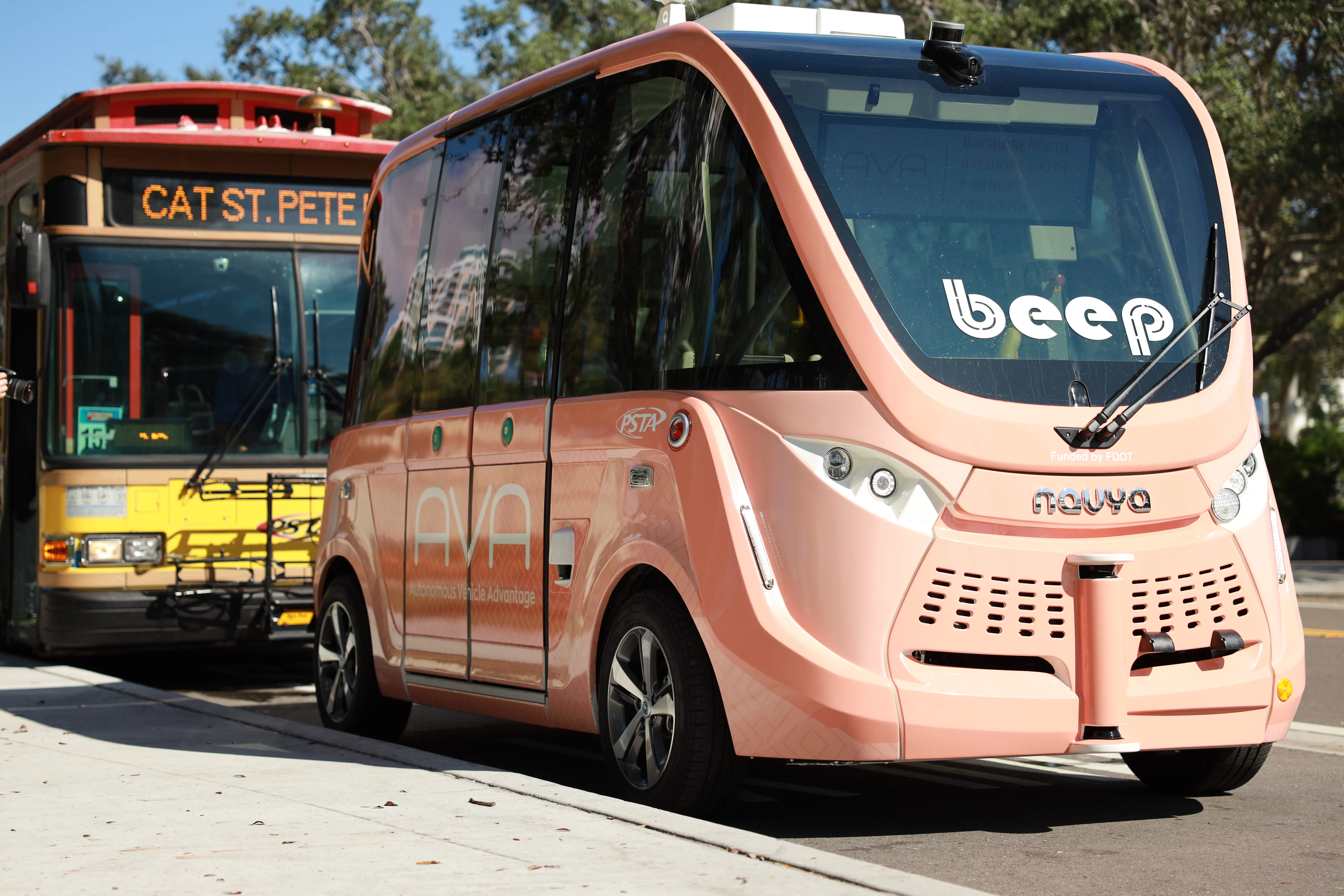The Transport Systems Catapult (TSC) in Milton Keynes has successfully tested its self-driving vehicles in public for the first time in the UK. The demonstration of a UK developed autonomous driving system marked the conclusion of the Lutz Pathfinder Project, which has been developing the technology for the past 18 months.
The project team has been running a number of exercises in preparation for the demonstration as part of the Lutz Pathfinder project, including virtual mapping of Milton Keynes, assess
October 13, 2016
Read time: 2 mins
The 7800 Transport Systems Catapult (TSC) in Milton Keynes has successfully tested its self-driving vehicles in public for the first time in the UK. The demonstration of a UK developed autonomous driving system marked the conclusion of the Lutz Pathfinder Project, which has been developing the technology for the past 18 months.
The project team has been running a number of exercises in preparation for the demonstration as part of the Lutz Pathfinder project, including virtual mapping of Milton Keynes, assessing public acceptance, conducting the necessary safety planning and establishing the regulatory environment with the support of Milton Keynes Council.
The autonomy software running the vehicle, called Selenium, was developed at Oxford University and integrated by Oxbotica on to an electric vehicle. Selenium uses data from cameras and Lidar systems to navigate its way around the environment.
The vehicle demonstration took place on pavements around Milton Keynes train station and business district. In the future it is expected that vehicles like those demonstrated in Milton Keynes will be used for local transportation in urban areas.
According to Neil Fulton, programme director at the TSC the public demonstration represents a major milestone for autonomous vehicles in the UK and the culmination of an extensive project involving UK companies and experts. He said Oxford University’s technology will go on to power automated vehicles around the world and the Lutz Pathfinder project will now feed into a much wider programme of autonomous trials across the UK.
Following the trial, the TSC’s Automated Transport Systems team will continue to research the challenges and promote the benefits of increased automation in transport.
The project team has been running a number of exercises in preparation for the demonstration as part of the Lutz Pathfinder project, including virtual mapping of Milton Keynes, assessing public acceptance, conducting the necessary safety planning and establishing the regulatory environment with the support of Milton Keynes Council.
The autonomy software running the vehicle, called Selenium, was developed at Oxford University and integrated by Oxbotica on to an electric vehicle. Selenium uses data from cameras and Lidar systems to navigate its way around the environment.
The vehicle demonstration took place on pavements around Milton Keynes train station and business district. In the future it is expected that vehicles like those demonstrated in Milton Keynes will be used for local transportation in urban areas.
According to Neil Fulton, programme director at the TSC the public demonstration represents a major milestone for autonomous vehicles in the UK and the culmination of an extensive project involving UK companies and experts. He said Oxford University’s technology will go on to power automated vehicles around the world and the Lutz Pathfinder project will now feed into a much wider programme of autonomous trials across the UK.
Following the trial, the TSC’s Automated Transport Systems team will continue to research the challenges and promote the benefits of increased automation in transport.









